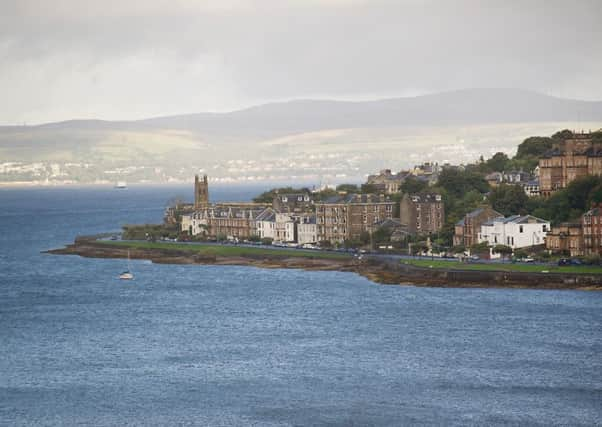Leaders: Scotland must welcome refugees | Problem drinkers


We now know that the fire at the Glasgow cultural centre used as a mosque was started deliberately.
Although not purpose built as a mosque, it is public knowledge that the building, in Bishopbriggs, is used by the Muslim community and therefore, it seems there is a high chance that yesterday morning’s attack had an anti-Islamic motive in the wake of last week’s terrorist attacks in Paris.
Advertisement
Hide AdAdvertisement
Hide AdThis is a disgrace. Such an attack is a despicable criminal act and we cannot allow the events in Paris to let anyone in Scotland to consider for a moment that this is an acceptable reaction and an act that can in any way be condoned.
Thankfully, no-one was injured in the blaze, which caused damage to a building in a lock-up area of the centre. However, Police Scotland has said it is treating the incident as an “act of wilful fire-raising” and have appealed for witnesses.
But however minor the incident, any anti-Islamic sentiment behind it cannot be allowed to fester or grow.
We welcome the group of Syrian refugees who touched down in Glasgow yesterday and who are now bound for various areas of Scotland.
Communities around the country have already prepared to welcome them, including a group on the isle of Bute, who have turned a community hall into a mosque where their new neighbours can pray.
This is the welcome which should be given to refugees coming here in search of a better, more peaceful life.
However, it is natural, amid reports of the way in which some of the perpetrators of the Paris attacks could have travelled to Europe, that people have some fears.
It is right that the authorities recognise those fears, and give assurances that the people who are being let in to this country have had their backgrounds scrutunised and pose no threat.
Advertisement
Hide AdAdvertisement
Hide AdBut that scrutiny should not pose a barrier to entry. Scotland should and will welcome them and make them feel at home and part of our country, though it may be that scrutiny takes a little more time.
Meanwhile, the people of France should be congratulated for the way in which they are standing up in the face of adversity.
The #tousaubistrot hashtag which has been retweeted by thousands of Twitter users – meaning “everyone to the bistro” – which encouraged people to stand together to eat and drink in the restaurants and bars of Paris last night, is fantastic and an admirable sentiment.
Other hashtags, such as #jesuisenterasse (“I am on the [restaurant] terrace”), which both reference the country’s resilience in the face of the attacks on the offices of satirical magazine Charlie Hebdo last January and allow people to post defiant pictures of themselves enjoying an evening of Paris nightlife, also demonstrate how France is pulling together. It shows an inspiring determination to stand up for what they see as their collective national values.
What the French people are doing is saying that they will not let what happened last Friday night, however atrocious, affect their normal lives.
We too should not let this affect what we do and affect how we live.
That has to be our reaction.
We need to identify problem drinkers
A report which shows that there has been a 43 per cent increase in deaths from liver cancer in Scotland over the past decade is worrying reading.
The rising death toll has been partly attributed to Scotland’s unhealthy relationship with alcohol and our continuing inability to tackle the country’s drinking habits. While deaths from most other cancers are dropping, mortalities from liver cancer - a disease which can, although not exclusively, be caused by excessive alcohol consumption, is on the increase.
Advertisement
Hide AdAdvertisement
Hide AdScotland has long been perceived as a heavy drinking culture, a problem which the government has attempted to tackle through introducing a minimum pricing for alcohol. However, although it was passed in the Scottish Parliament, this has become bogged down in a legal battle with the whisky industry.
Anecdotally, it seems there have been some inroads into addressing the problem - and there is no doubt that in certain demographics, the education message is getting through.
A recent study from the University of St Andrews showed a reduction in the alcohol consumption of young people in Scotland, with weekly drinking among 15-year-olds now below those reported in 1990. Meanwhile new, stringent drink driving laws have begun to curb after-work drinking or the common “just the one” on the way home. But for many parts of the population this is not the case.
We need to see more from the government in terms of a joined up strategy to identify those at risk and offer help.
More needs to be done to find out exactly who is still drinking to an unhealthy degree - and why the message is not getting through. Minimum pricing will not be the magical solution; there will still need to be cultural change.